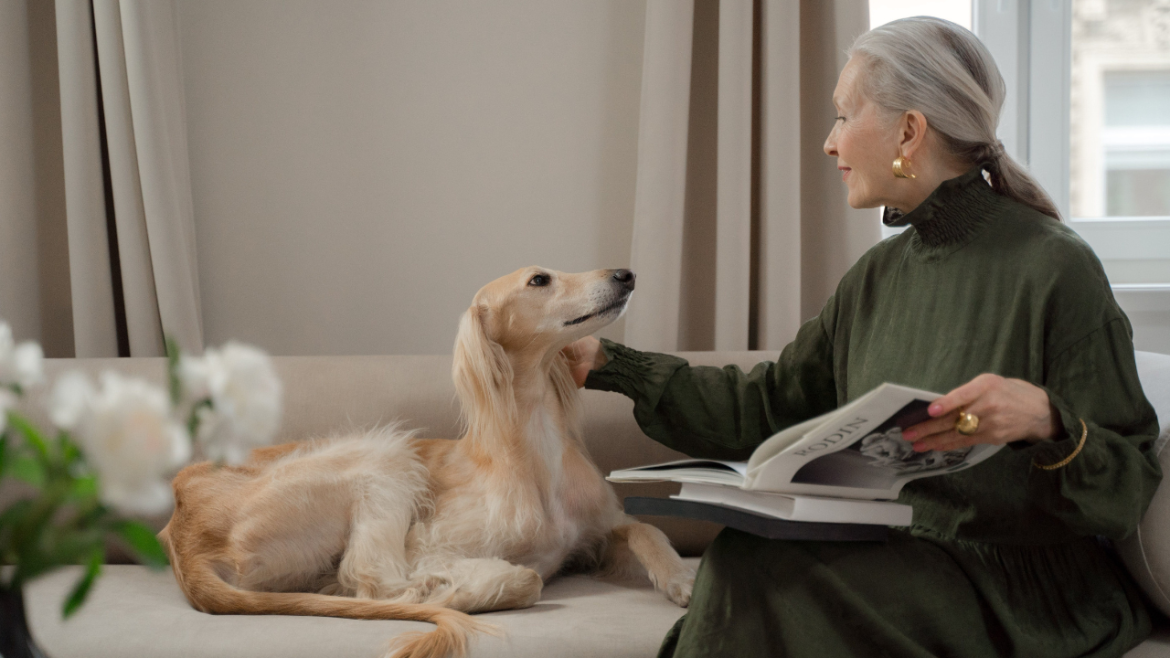Did you know that Leading Edge Senior Care has a Dementia Support Group? We meet monthly in Mesa. For more details <click here>
The Power Of Pet Therapy & Seniors With Dementia
The therapeutic influence of pets on seniors facing dementia is immeasurable. Pet therapy, also known as animal-assisted therapy, involves interactions between trained animals and individuals to provide comfort, support, and emotional well-being. When implemented for seniors navigating dementia, this form of therapy unfolds a realm of benefits that transcend the ordinary. The Power Of Pet Therapy & Seniors With Dementia
Introducing the concept of pet therapy paves the way to explore its profound impact on seniors dealing with dementia.
Emotional Connection and Companionship:
For seniors with dementia, pets offer a unique emotional connection and companionship. The unconditional love, non-judgmental presence, and tactile comfort provided by animals create a sense of security and alleviate feelings of loneliness.
Pets establish a unique emotional bond, offering companionship and alleviating loneliness for seniors with dementia.
Stimulating Cognitive Functions:
Engaging with pets stimulates cognitive functions for seniors dealing with dementia. Activities like grooming, playing, or simply observing animals can spark memories, improve focus, and enhance mental acuity.
Interacting with pets aids in stimulating cognitive functions and enhancing mental clarity for seniors.
Elevating Mood and Reducing Stress:
The presence of pets significantly contributes to uplifting moods and reducing stress levels in seniors with dementia. Interacting with animals triggers the release of oxytocin, fostering feelings of happiness and tranquility.
Pet interactions induce feelings of happiness and tranquility, reducing stress for seniors coping with dementia.
Enhanced Physical Activity:
Engaging with pets often encourages seniors to engage in physical activities like walking or playing, promoting exercise and mobility. These activities contribute to improved physical health and well-being.
Pet interactions encourage physical activities, fostering better physical health for seniors with dementia.
Improving Social Interaction:
Pets act as social facilitators, encouraging seniors with dementia to engage in social interactions. Whether through conversations about pets or shared activities, social interaction is encouraged.
Pets foster social interactions, enhancing the social engagement of seniors dealing with dementia.
Creating a Sense of Routine and Responsibility:
Caring for pets instills a sense of routine and responsibility in seniors. Daily tasks related to feeding, grooming, or walking pets provide structure and purpose.
Pet care activities instill a sense of purpose and routine, contributing to the well-being of seniors with dementia.
Facilitating Communication:
Seniors with dementia might face challenges in verbal communication, but interacting with pets often circumvents these barriers. Non-verbal communication, like petting or facial expressions, becomes a means of expression.
Pets serve as catalysts for non-verbal communication, aiding seniors in expressing emotions despite verbal challenges.
Professional Supervision and Implementation:
Implementing pet therapy for seniors with dementia requires professional guidance. Trained therapists and caregivers oversee the interaction between seniors and animals, ensuring safety and efficacy.
Professional oversight is crucial in implementing pet therapy, ensuring safe and effective interactions for seniors.
Conclusion:
The transformative effects of pet therapy on seniors coping with dementia are undeniable. Through emotional connection, cognitive stimulation, mood elevation, and physical activity, pets play multifaceted roles in enhancing the quality of life for seniors. The integration of pet therapy into dementia care offers immeasurable benefits, fostering emotional well-being, and creating moments of joy and comfort amidst the challenges posed by dementia.

